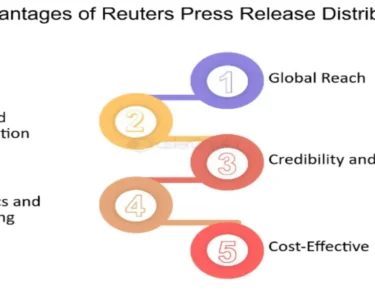Surveys can collect personal information that reveals who you are even if the survey claims to be anonymous, such as when using Facebook Messenger: the survey creator can see both your first and last name even if you select “Keep responses anonymous”.
As this can make respondents less likely to answer honestly, be sure to activate the Anonymous Responses Collector setting before sending your survey.
No
SurveyMonkey is one of the leading online survey solutions available today, helping organizations post surveys to collect feedback, reviews and opinions from their audiences. Many users who utilize this platform question whether their surveys submitted are anonymous; unfortunately the answer is no.
More: Dupont Museum | Washington DC Local T.V Station | Survey Monkey Quiz Mode | New Politics Academy | NASA Langley Visitor Center | Minnesota Museum
Survey Monkey allows users to customize their questionnaires in various ways, enabling them to include multiple choice answers, short answers, true/false questions and web/mobile compatibility for surveys they create. In addition, duplicating surveys easily makes Survey Monkey an invaluable tool for collecting data for research purposes.
Though most responses to a SurveyMonkey survey remain anonymous, in some instances an individual’s identity can become known. For instance, this could happen if survey creators opt to collect IP addresses alongside respondent responses – although this doesn’t reveal their names directly, it does help pinpoint their locations more specifically.
Alternatively, survey participants may provide identifiable details through other questions on the questionnaire such as their job title or organization affiliations.
As soon as a respondent’s identity has been disclosed, their experience with the survey and company can become disastrous. If someone feels their privacy has been violated, they may choose not to participate in future studies or may believe the organization did not act responsibly in its actions.
As such, some organizations opt to avoid SurveyMonkey when dealing with sensitive topics and questions. It is advised that respondents seek out alternative online survey solutions with stronger security features – for instance a service offering end to end encryption that’s hosted in Canada so their data is protected by law.
Unsecure online survey solutions can be very dangerous. They may allow the collection of personal information from your audience that could expose them to fraudulent activity online, so it is imperative that any survey you publish online be completely protected against misuse before posting. BlockSurvey is one such tool that provides this level of security while being easy to set up on any device – start your free trial now to see how well it works!
Yes
Survey Monkey surveys provide an excellent platform to gather responses from your target audience. With its customizable questionnaire creator and various options for distribution and analysis of collected data, Survey Monkey can quickly collect responses that you want from people. However, people are increasingly asking whether its anonymity has any limits.
Answering this question depends entirely upon how the survey is designed. If it contains an anonymity setting, respondents will not be able to see their answers in the results section – an option which can be toggled in Settings Menu but only affects future surveys rather than existing ones.
If a survey is not created with anonymity settings in mind, its results can be seen by its creator and could contain sensitive data like respondents’ first and last names, email addresses and phone numbers as well as answers that ask them about their location – this data can then be used to identify respondents or trace their locations.
See More: The Museum of Discovery | The Colorado History | Museum Northwest | Flagstaff Museum | Terry Bryant Accident Injury Law | Nevada Museum | Explore the Earth Surface
Some individuals use anonymous surveys in order to avoid disclosing their identity when answering sensitive questions. It’s important to keep in mind, though, that an anonymous survey is distinct from a confidential one – in this instance the system administering the survey has knowledge of who responded but takes measures to keep their personal details from being shared outside.
SurveyMonkey may seem anonymous at first glance; however, its use should not be assumed as completely anonymous as it collects IP addresses from devices used to complete surveys using SurveyMonkey. To be on the safe side it’s essential that when using such a platform that this aspect is taken into consideration.
SurveyMonkey not only collects IP addresses but also gathers meta-information such as browser, device, operating system and other variables from respondents – which could allow demographic profiling of respondent profiles; making it harder to ensure responses are truly anonymous.
BlockSurvey can help ensure that a survey remains truly anonymous by using blockchain technology and Bitcoin security to secure the process.
It features numerous features designed to facilitate secure, confidential surveys while helping reduce bias by offering question, page and block randomization – which ensures data collected isn’t affected by specific individuals. Start a free trial of BlockSurvey now to put its capabilities through its paces for yourself!
Frequently Asked Questions
SurveyMonkey offers a variety of options to ensure anonymity however, complete anonymity cannot be 100% guaranteed. Although the platform permits customization survey questions and claims that it can keep the responses private, certain factors such as IP addresses as well as certain questions could compromise anonymity.
SurveyMonkey gathers a variety of data points from respondents such as IP addresses and other metadata, such as the information about their device and browser. The information, in conjunction with the responses given, could inadvertently reveal the identity of a user or other demographic data.
Based on the settings of the survey and the details given by respondents, survey makers may be privy to specific particular information, including the names of respondents’ first and last, emails addresses or even location data. This could happen if the anonymity settings aren’t turned on or if the respondents are willing to disclose such data.
The use of SurveyMonkey for sensitive surveys comes with dangers, since it collects information that could be compromising respondents privacy.
Surveys that are anonymous conceal the identities of respondents from survey creators as well as administrators. However confidential surveys ensure the anonymity of respondents from other participants, yet they are also known to the administrator of the survey. SurveyMonkey generally offers surveys that are confidential which can provide anonymity when configured properly.
Yes, platforms such as BlockSurvey provide advanced security features, such as blockchain technology as well as Bitcoin security to guarantee that the respondent is completely anonymous. These options are focused on data privacy and offer security ways to reduce the risk of identity disclosure or misuse of data.






